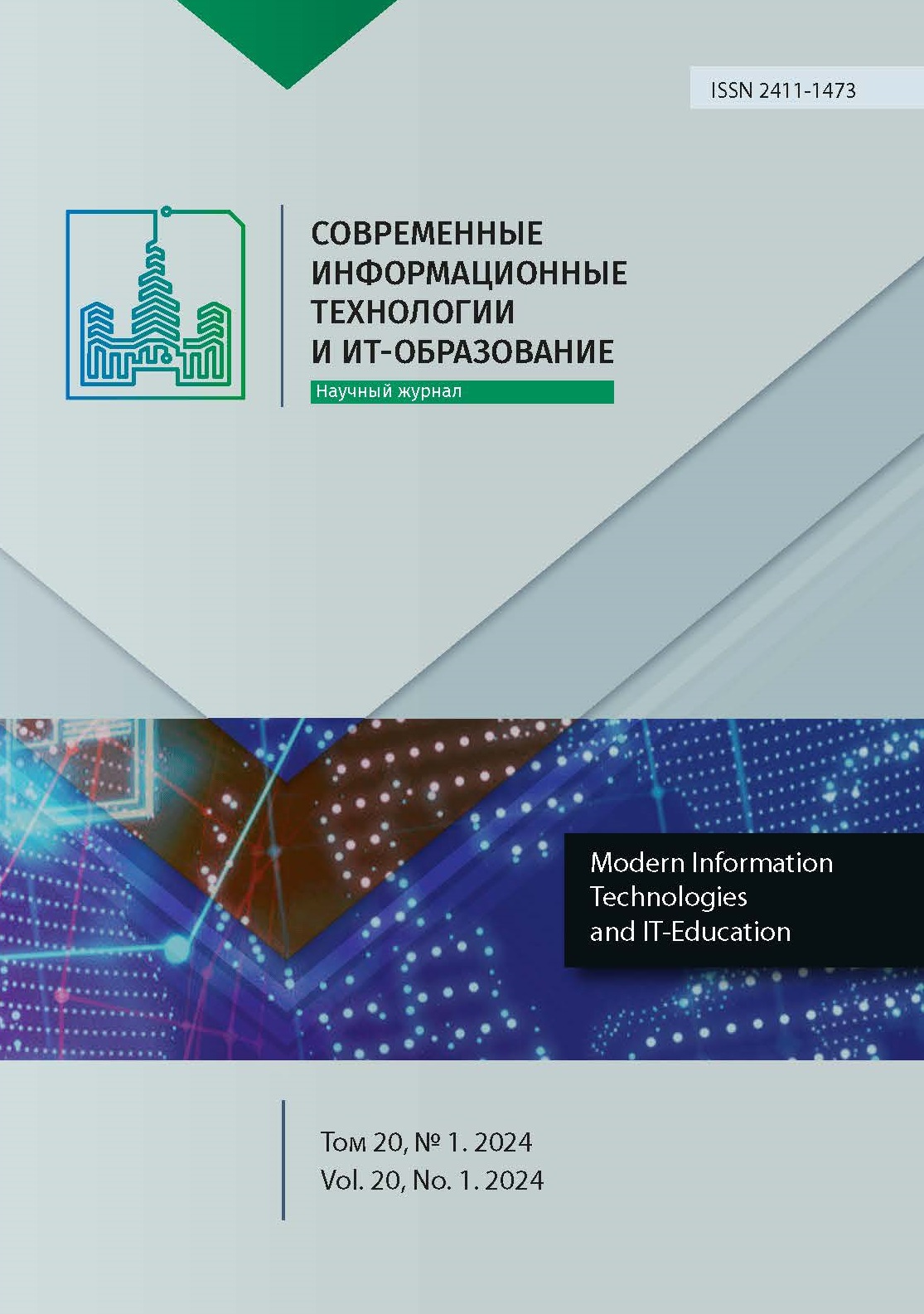Роль "информационного поворота" в формировании научного мировоззрения современной IT-личности
Аннотация
В статье рассматривается научно-методологический феномен, обусловленный рождением теории информации, которая позволила осуществлять количественный анализ как информационных источников, так и энтропии в качестве меры неопределённости информации. Новое научное направление, зародившееся в середине XX-го века, послужило началом философского движения, объединившего ряд дисциплин – психологию, информатику, кибернетику и философию – и получившего название «когнитивная революция», или «информационный поворот». С позиций «информационного поворота», повлиявшего на смену философской парадигмы в развитии кибернетики, информация получила статус основы, на которой построен человеческий мозг, а кибернетика, первой претендуя на звание Новой науки, стала пониматься как новая интерпретация человека и человеческих знаний о вселенной и обществе, объединяющая изучение стратегий коммуникации, управления и саморегуляции, а также способов взаимодействия «человека разумного» и машины со встроенным целесообразным поведением.
С течением времени, по мере перехода к новым реалиям постнеклассического периода развития наук и технологий, звания Новой науки стала добиваться также синергетика. Тем не менее, кибернетика, теория информации и информатика как источники мощнейших инструментов для работы с информационными ресурсами, организации образовательной и профессиональной деятельности и как основополагающие дисциплины в формировании современной картины мира ещё долго не исчерпают своего потенциала.
Подобные перспективы, расширяющие возможность управления познавательными процессами, привели к необходимости усиления гуманитарной составляющей в образовательных программах по IT-специальностям, обеспечения смены методологии и разработки принципиально иных подходов к преподаванию инженерно-технических дисциплин. Кроме того, новому содержанию наук, обусловивших рождение «информационного поворота», и усилению мировоззренческих аспектов в восприятии знаний о вселенной и обществе поспособствовала философская парадигма сложностности, базис которой составила обновлённая теория познания, построенная на научных принципах объяснительного, а не прогностического характера.
Литература
2. Pesotskaya E.N., Inchina V.I., Zor'kina A.V. The philosophy of the information society and mixed reality on the way to technological singularity. Kontekst i refleksiya: filosofiya o mire i cheloveke = Context and Reflection: Philosophy of the World and Human Being. 2021;10(5А):170-179. https://doi.org/10.34670/AR.2021.97.97.019
3. Pao L. Ways of Cybernetic Thinking. New Literary History. 2023;54(2):1271-1279. https://doi.org/10.1353/nlh.2023.a907173
4. Woodward A. Postinformational Education. International Journal of Philosophical Studies. 2023;31(4):501-521. https://doi.org/10.1080/09672559.2023.2290548
5. Reijers W., Orgad L., de Filippi P. The rise of cybernetic citizenship. Citizenship Studies. 2022;27(2):210-229. https://doi.org/10.1080/13621025.2022.2077567
6. Peters M.A., Jandrić P., Hayes S. Biodigital Philosophy, Technological Convergence, and Postdigital Knowledge Ecologies. In: Peters M.A., Jandrić P., Hayes S. (eds.) Bioinformational Philosophy and Postdigital Knowledge Ecologies. Postdigital Science and Education. Cham: Springer; 2022. p. 3-22. https://doi.org/10.1007/978-3-030-95006-4_1
7. Scott B. Cybernetics for the Social Sciences. Brill Research Perspectives in Sociocybernetics and Complexity. 2021;1(2):1-128. https://doi.org/10.1163/25900587-12340002
8. Jeon W. Second-Order Recursions of First-Order Cybernetics: An "Experimental Epistemology". Open Philosophy. 2022;5(1):381-395. https://doi.org/10.1515/opphil-2022-0207
9. Quin C.A.C. Cybernetic Architectures: Informational Thinking and Digital Design. 1st ed. London: Routledge; 2021. 164 p. https://doi.org/10.4324/9781003181101
10. August V. Network concepts in social theory: Foucault and cybernetics. European Journal of Social Theory. 2021;25:271-291. https://doi.org/10.1177/1368431021991046
11. Dodig-Crnkovic G. Info-computational Constructivism and Cognition. Constructivist Foundations. 2014;9(2):223-231. Available at: https://philpapers.org/archive/DODICA.pdf (accessed 19.11.2023).
12. Brier S. Finding an Information Concept Suited for a Universal Theory of Information. Progress in Biophysics and Molecular Biology. 2023;119(3):622-633. https://doi.org/10.1016/j.pbiomolbio.2015.06.018
13. Bosancic B., Matijevic M. Information as a Construction. Journal of Librarianship and Information Science. 2020;52(2):620-630. https://doi.org/10.1177/0961000619841657
14. Kesić S. Universal Complexity Science and Theory of Everything: Challenges and Prospects. Systems. 2024;12(1):29. https://doi.org/10.3390/systems12010029
15. Lysak I.V. Information as a general scientific and philosophical concept basic approaches to its definition. Philosophical Problems of Information Technology and Cyberspace. 2015;(2):9-26. (In Russ., abstract in Eng.) https://doi.org/10.17726/philIT.2015.10.2.391
16. Alvarez J.T., Ramírez-Correa P. A Brief Review of Systems, Cybernetics, and Complexity. Complexity. 2023;2023:205320. https://doi.org/10.1155/2023/8205320
17. Adams F. The informational turn in philosophy. Minds and Machines. 2003;13(4):471-501. https://doi.org/10.1023/a:1026244616112
18. Gladden M.E. Who Will Be the Members of Society 5.0? Towards an Anthropology of Technologically Posthumanized Future Societies. Social Sciences. 2019;8(5):148. https://doi.org/10.3390/socsci8050148
19. Natal J., Ávila I., Tsukahara V.B., Pinheiro M., Maciel C.D. Entropy: From Thermodynamics to Information Processing. Entropy. 2021;23(10):1340. https://doi.org/10.3390/e23101340
20. Hilbert M. Information Theory for Human and Social Processes. Entropy. 2021;23(1):9. https://doi.org/10.3390/e23010009
21. Tsvetkov V.Ya. Negentropy and Information. Distancionnoe i virtual'noe obuchenie. 2017;(5):5-13. (In Russ., abstract in Eng.) EDN: ZIGBXV
22. Yolles M. Metacybernetics: Towards a General Theory of Higher Order Cybernetics. Systems. 2021;9(2):34. https://doi.org/10.3390/systems9020034
23. Ben-Naim A. Entropy and Information Theory: Uses and Misuses. Entropy. 2019;21(12):1170. https://doi.org/10.3390/e21121170
24. Martin J.S., Smith N.A., Francis C.D. Removing the entropy from the definition of entropy: clarifying the relationship between evolution, entropy, and the second law of thermodynamics. Evolution: Education and Outreach. 2013;6:30. https://doi.org/10.1186/1936-6434-6-30
25. Roztocki N., Soja P., Weistroffer H R. The role of information and communication technologies in socioeconomic development: towards a multi-dimensional framework. Information Technology for Development. 2019;25(2):171-183. https://doi.org/10.1080/02681102.2019.1596654

Это произведение доступно по лицензии Creative Commons «Attribution» («Атрибуция») 4.0 Всемирная.
Редакционная политика журнала основывается на традиционных этических принципах российской научной периодики и строится с учетом этических норм работы редакторов и издателей, закрепленных в Кодексе поведения и руководящих принципах наилучшей практики для редактора журнала (Code of Conduct and Best Practice Guidelines for Journal Editors) и Кодексе поведения для издателя журнала (Code of Conduct for Journal Publishers), разработанных Комитетом по публикационной этике - Committee on Publication Ethics (COPE). В процессе издательской деятельности редколлегия журнала руководствуется международными правилами охраны авторского права, нормами действующего законодательства РФ, международными издательскими стандартами и обязательной ссылке на первоисточник.
Журнал позволяет авторам сохранять авторское право без ограничений. Журнал позволяет авторам сохранить права на публикацию без ограничений.
Издательская политика в области авторского права и архивирования определяются «зеленым цветом» в базе данных SHERPA/RoMEO.
Все статьи распространяются на условиях лицензии Creative Commons «Attribution» («Атрибуция») 4.0 Всемирная, которая позволяет другим использовать, распространять, дополнять эту работу с обязательной ссылкой на оригинальную работу и публикацию в этом журналe.













